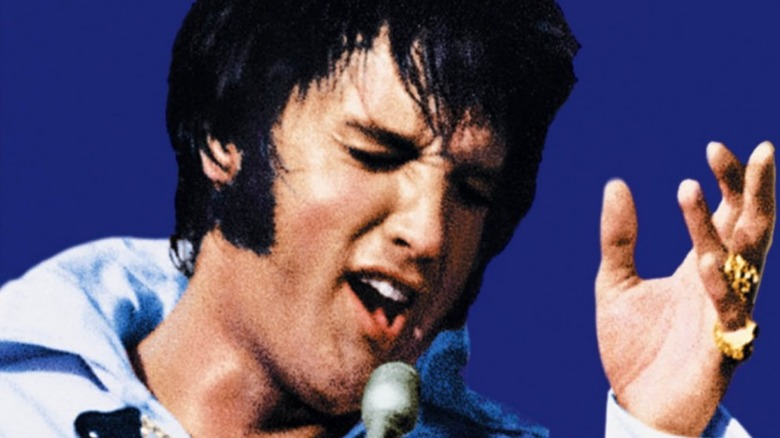
Ever since the debut of "The Jazz Singer," the first feature-length movie with sound, filmmaking has always been closely associated with modern music. Musicals, many of which covered popular tunes of the day, were among the earliest blockbusters. Currently, the musician biopic genre is more popular than ever, thanks to the record-breaking box-office and awards success of films like "Straight Outta Compton" and "Bohemian Rhapsody." But in terms of accuracy and raw, visceral energy, the staged recreation of iconic musical numbers can't compare with a concert film or documentary.
Music documentaries can capture a musician's story as they occur, but they can also look back at historical events years later and provide additional insights. They have the power to shed new light on famous performers whose life has been frequently covered by the media, and can spotlight underseen musicians who aren't given the credit they deserve. Music documentaries are often major awards contenders -- films like "Amy," "20 Feet from Stardom," and "Searching for Sugar Man" all took home the prize for best documentary feature.
The idiosyncratic "Tiny Tim: King for a Day" spotlighted one of Weird Al's predecessors, "Tina" showed groundbreaking footage of the voice of a generation, and "Billie" was more engaging than the Oscar-nominated biopic about the same subject. And those are just the docs from the past couple of years. A great music documentary appeals to both existing fans and new listeners, so whether you're looking for a new act to follow or want to check in with an old favorite, make sure to see the greatest music documentaries ever made.
The Last Waltz
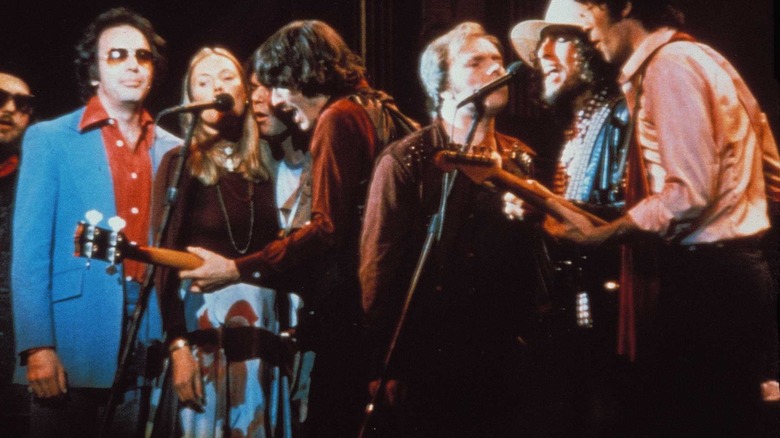
Martin Scorsese is a phenomenal storyteller regardless of what medium he's working in, and he has the unparalleled ability to capture the essence of a specific place and time in history. Whether it's the modern vibe of New York City in "Mean Streets" and "Taxi Driver," the brutal vision of colonial Japan in "Silence," the fast-paced stockbroker culture of "The Wolf of Wall Street," or the epic sweep of the criminal underworld in "The Irishman," Scorsese shows how history intertwines with the men who shape it. Scorsese has used that skill to create a number of music documentaries. With "The Last Waltz" he faced the unique challenge of capturing a historic moment as it unfolded.
"The Last Waltz" details the final united performance of the pop folk group the Band, which had announced its separation. The group's last performance was held on Thanksgiving Day of 1976 in San Francisco, and Scorsese was granted unparalleled access to the group before, during, and after the concert. It's fascinating to see the members of the band reflect on their legacy ahead of actually playing; Scorsese gets guitarist Rick Danko, keyboardist Garth Hudson, drummer Richard Manuel, and frontman Robbie Robertson to seem relaxed and casual.
The music itself is famous for a reason, and Scorsese gets incredible coverage of numbers like "The Weight." His editing is subtle, and, in an interesting twist, keeps his camera trained on the Band even when it's accompanied by guests like Bob Dylan or Joni Mitchell.
Summer Of Soul (...Or, When The Revolution Could Not Be Televised)
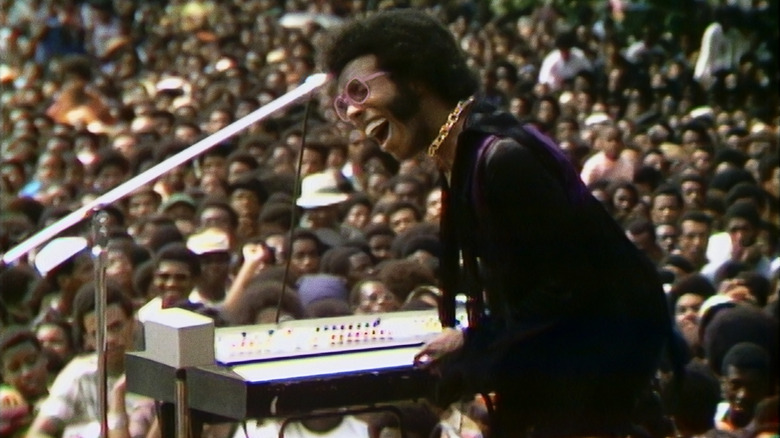
Music documentaries have the power to spotlight underrepresented voices and shed light on history that the mainstream media and music critics have ignored. Simultaneous to the groundbreaking 1969 Woodstock music festival (the subject of its own Academy Award-winning documentary in 1970), the Harlem Cultural Festival was held at Mount Morris Park and gathered many of the leading Black artists of the era. Legendary performers such as Stevie Wonder, Mahalia Jackson, Nina Simone, the 5th Dimension, the Staple Singers, Gladys Knight & the Pips, Blinky Williams, Sly and the Family Stone and the Chambers Brothers all graced the show with performances.
Despite the incredible lineup, the festival was relegated to obscurity by pop culture media. The 2021 documentary "Summer of Soul (...Or, When the Revolution Could Not Be Televised)" explores how the festival began and why it's been ignored. The film was directed by Questlove, the incredible drummer for the Roots, who is able to get the participants to speak frankly about their experiences. Questlove understands the minutiae of crafting an entertaining live performance, and as a result "Summer of Soul" features a musician's touch behind the camera that most music documentaries do not have.
"Summer of Soul" tackles the history of discrimination against Black artists, and in one powerful exchange Questlove himself reflects, "What would have happened if this was allowed a seat at the table?" Some of the discussions can get grim, but the performance footage has been lovingly restored.
No Direction Home: Bob Dylan
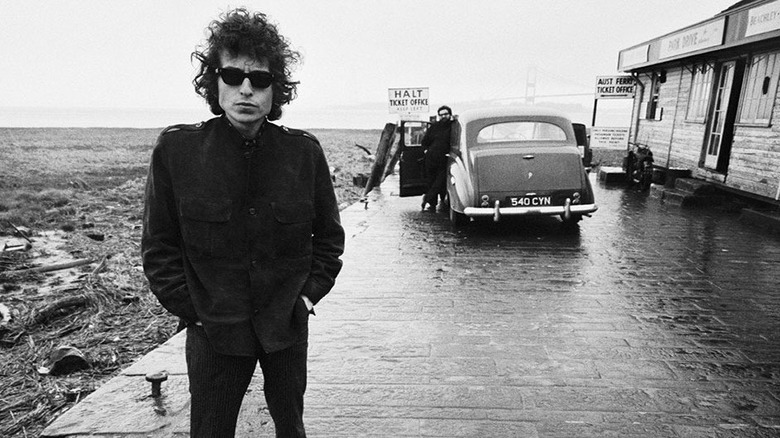
While "The Last Waltz" is essentially an extended concert movie that captures events as they occur, Scorsese's larger music documentary filmography has explored the entire lives of some legendary performers; he's covered figures such as the Rolling Stones, George Harrrison, and Muddy Waters. This list includes Bob Dylan, who appeared alongside the Band for several phenomenal numbers in "The Last Waltz"; with 2005's "No Direction Home: Bob Dylan," Scorsese explored Dylan's entire career, with some fascinating insights from Dylan himself.
The exhaustive 208-minute documentary is as meticulously packed with detail as Scorsese's similarly lengthy narrative films, but once again the long running time is warranted given the unparalleled influence of its subject. Dylan isn't always forthcoming with interviewers, but his friendship with Scorsese resulted in an intimate discussion about the challenges he faced throughout his career. The songs are iconic enough on their own, and Dylan explains how unexpectedly becoming the face of a progressive moment gave him anxiety during the '60s. Personal admissions about the impact that his breakup had on the composition of his 1975 masterwork "Blood on the Tracks" is handled with sensitivity; knowing their meaning makes Scorsese's inclusion of entire segments of "Idiot Wind" even more impactful.
Similarly, access to Dylan's personal vault leads to plenty of exclusive footage, including early childhood photos, screen tests for Andy Warhol, and a video of the controversial Manchester Free Trade Hall performance.
Bob Dylan: Don't Look Back
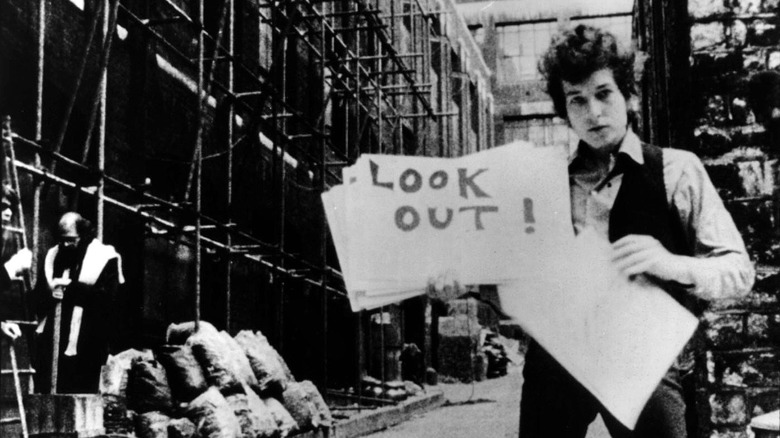
Scorsese was able to cover Dylan's comprehensive biography in "Don't Look Back," but the renowned documentarian D. A. Pennebaker had direct access to a pivotal period in Dylan's career as it unfolded. Dylan was already an established icon in 1965, and at the time it was rare for an artist to trust a filmmaker with 24-hour access and behind-the-scenes content during a major tour, particularly if that musician was one of the biggest in history. And yet, Pennebaker follows Dylan and his band during more or less the entirety of their 1965 tour of England.
Pennebaker deserves to be heralded as one of the great American filmmakers, as no director has ever showed his same dedication to capturing lionized musicians and performances; Pennebaker also covered figures like Otis Redding, David Bowie, Jerry Lee Lewis, and Alice Cooper. Here, Pennebaker follows Dylan as he hangs out in his apartment and tests new lyrics for what would become "Subterranean Homesick Blues." The film immortalized the image of Dylan discarding cue cards.
Pennebaker was also unafraid to capture moments when Dylan pushed the boundaries of his celebrity and became borderline unlikeable. A sequence in which Dylan teases Time Magazine writer Horace Freeland Judson begins as an amusing interaction, but the situation grows increasingly uncomfortable as it goes on. Pennebaker doesn't take a side, simply detailing the exchange and letting the viewer decide for themselves. A heated confrontation with Alan Prince, who Dylan asks about why he recently left the Animals, is treated with similar sensitivity.
The Sparks Brothers
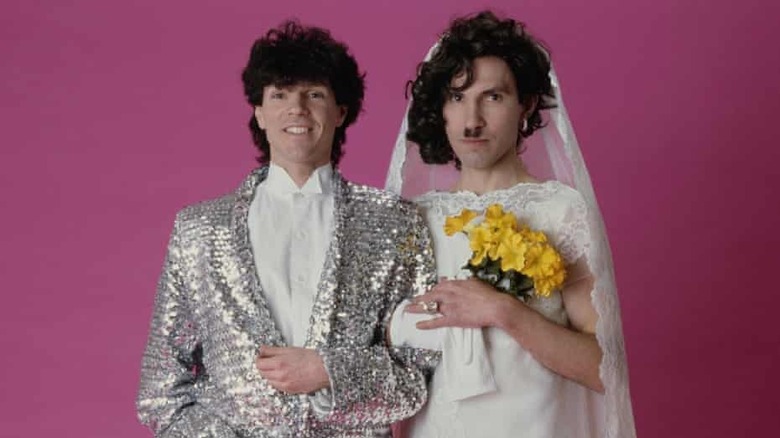
Legendary British filmmaker Edgar Wright is known for his taste in music, as Wright often selects idiosyncratic soundtracks to compliment his fictional feature films. "Shaun of the Dead," "Hot Fuzz," and "The World's End" all feature eclectic music choices from multiple genres that make the film's comical storylines and shocking non sequiturs more interesting. With "Baby Driver," Wright meticulously coordinated his soundtrack with a series of densely choreographed car chase sequences. Wright's picks are unusual and diverse, and he clearly knows his music history. That makes him the perfect person to tell the story of an underappreciated duo that's been tirelessly working for decades.
Sparks may not be a household name, but their music has influenced some of the most famous names of today, as evidenced by the stacked lineup of celebrities, actors, artists, critics, and filmmakers that Wright assembles to provide insight on the duo's legacy. Ron and Russell Meal grew up together in California, and began developing a music style somewhere between pop and rock; like Wright, they're impossible to pin to just one genre. Sparks' music often includes clever lyrics, strange narratives, and references to pop culture and Shakespeare. The film features humorous insights from the duo themselves as they humbly detail their hard work.
The banter between Ron and Russell makes the film consistently engaging, and their discography is so extensive that the 140-minute run time doesn't drag. The film even includes recent work from the soundtrack of Leos Carax's "Annette."
Beastie Boys Story
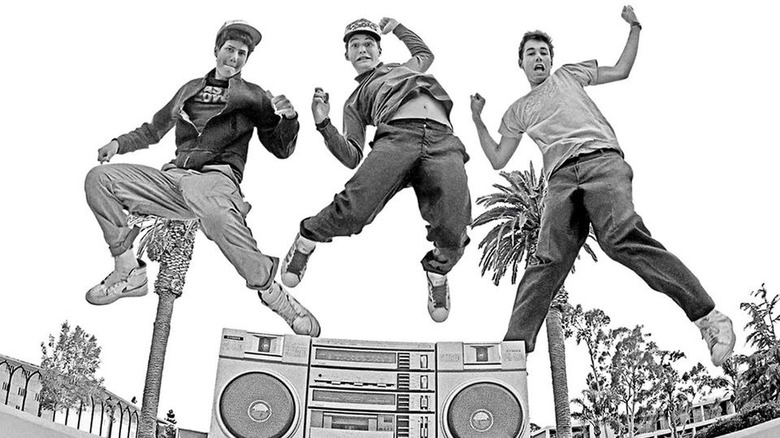
Music documentaries often benefit from a personal touch by the filmmakers, and the perspective of "Beastie Boys Story" is very unique. The film was directed by Spike Jonze, an early music video director and lifelong friend of the Beastie Boys. Jonze would later go on to helm idiosyncratic, emotional narrative features like "Being John Malkovich," "Adaptation," and "Her." With "Beastie Boys Story," he merged these influences into a film that's part comprehensive biopic, part personal reflection, and part concert film.
"Beastie Boys Story" combines footage of surviving Beastie Boys members Adam Horovitz and Michael Diamond over the course of three live appearances at the King Theater in Brooklyn; the transitions between the three shows are never off-putting, as it feels like one cohesive work. On stage, Horovitz and Diamond discuss their careers and achievements, accompanied by a video presentation that shows early childhood photos, behind-the-scenes videos, and segments of some of their most famous tracks. Horovitz and Diamond are reading from a script, but often get off cue and banter with the audience. Jonze himself interacts with them throughout the show.
The environment is very light, as the crowd is filled with Beastie Boys fans who know their lyrics by heart. Although Horovitz and Diamond are controlling their own narrative, they address their misgivings about sexist remarks and lyrics from earlier in their careers. The moments when they reflect on the death of Adam Yauch are particularly emotional.
Justin Timberlake + The Tennessee Kids
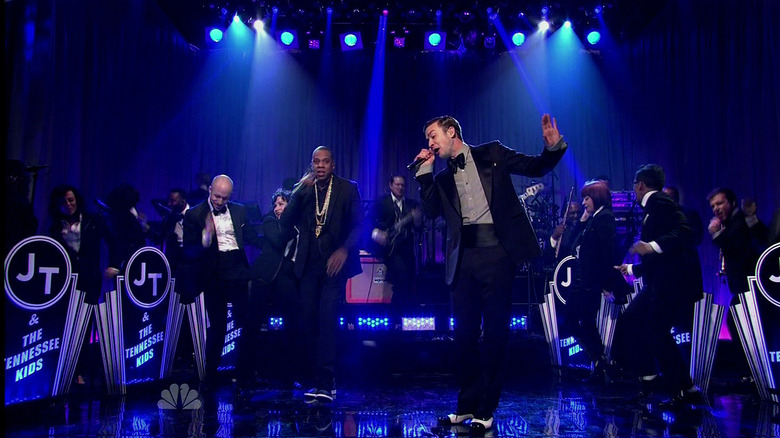
The influence of an established filmmaker can elevate a concert movie experience into something more insightful, emotional, and multifaceted than they would be otherwise. Academy Award-winning filmmaker Jonathan Demme was renowned for his humanistic approach to storytelling, regardless of the genre he was working in. Demme knew how to capture characters' feelings, even if the horror classic "Silence of the Lambs," courtroom drama "Philadelphia," road trip comedy "Something Wild," and political thriller "The Manchurian Candidate" all seem quite distinct on paper. Demme's sensitivity extended to his music films, including the Talking Heads classic "Stop Making Sense."
Demme depicted the final performance of Justin Timberlake's 20/20 Experience World Tour in his Netflix film "Justin Timberlake + the Tennessee Kids." However, Demme also took the time to explore the moments leading up to the show itself, detailing the meticulous stage production and personal moments between Timberlake and the crew that followed him throughout the tour. Not only does "Justin Timberlake + the Tennessee Kids" give the viewer a greater appreciation for the actual performance, but it also shows a genuinely affectionate side to Timberlake as he expresses gratitude to those who've tirelessly supported him. Demme allows the audience to connect with Timberlake as an individual before unveiling him as a showman.
The performance itself is electrifying, and the energy level is consistent throughout the 17-song tracklist. The show grows particularly emotional at the end; Timberlake is overwhelmed at the conclusion of his most extensive tour, reducing him to tears. This was also Demme's last film.
Gimme Shelter
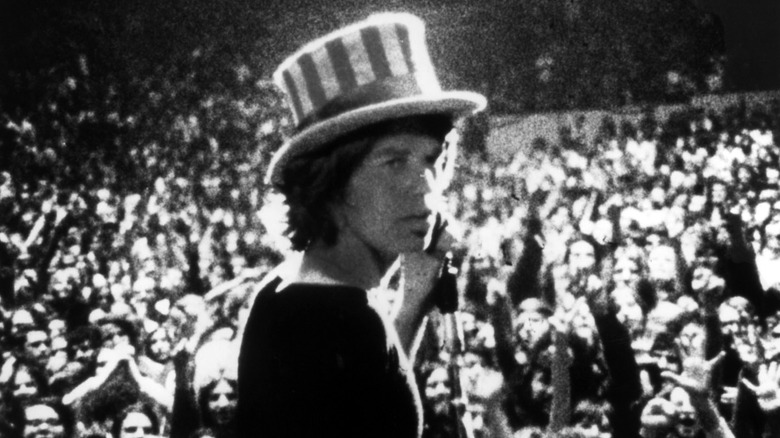
Great music documentaries can respond to shocking developments and end up serving as critical historical documents. 1970's "Gimme Shelter" was originally intended to be a concert film that showed the last weeks of the Rolling Stones' 1969 U.S. world tour. However, the shocking events at the Altamont Free Concert forced directors Albert and David Maysles to turn it into a true crime documentary.
During the massive outdoor counter-culture festival, chaos broke out amongst a rowdy crowd during the early performances by Santana, Jefferson Airplane, the Flying Burrito Brothers and Crosby, Stills, Nash & Young. When the Rolling Stones took the stage, the tensions escalated as crowd members attempted to rush the stage, prompting a clash with the Hells Angels working as security guards. Teenager Meredith Hunter was among a group that fought with the Angels during the Rolling Stones' performance of "Sympathy for the Devil," and was stabbed and killed. His death and the Stones' immediate reaction are shown in intimate detail.
In chronicling one of the darkest days in rock and roll history, "Gimme Shelter" is absolutely heartbreaking. The early moments show the Stones enthusiastically preparing for the performance and rehearsing early versions of "Brown Sugar" and "Wild Horses." They reveal Mick Jagger's charisma as he works with Tina Turner. The exhaustive planning of Altamont fades to a shot of Jagger watching the footage in retrospective, left in a stunned silence. The Maysles choose to open with these reflections, and close it on the immediate chaos that follows the tragedy.
Elvis: That's The Way It Is
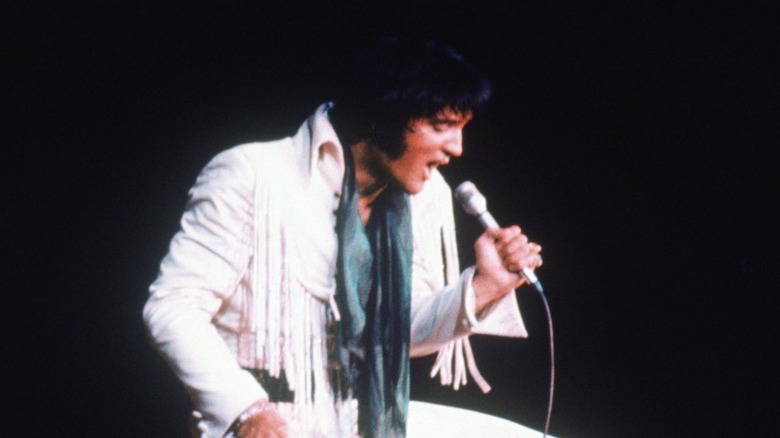
The early '70s were a fascinating period in Elvis Presley's career. Elvis was obviously one of the most iconic performers of all-time, and topped his record-breaking success in the '50s with an expansion in the '60s, when he began starring in an increased number of Hollywood films. A brief decline in the mid-'60s saw Elvis holding fewer concerts and earning increasingly negative reviews for his performances, but the famous '68 comeback special was able to recapture his spirit. "Elvis: That's The Way It Is" became Elvis's first cinematic appearance in a non-narrative film in over a decade.
The 1971 documentary follows Elvis' preparations for a massive Las Vegas concert in which he performed some of his most iconic tracks. It's a loving tribute to his career, and Elvis had grown comfortable with the Vegas location; contrasting the luxurious grand halls with the smaller venues of his earlier career is fascinating. "That's the Way It Is" shows Elvis' playful interactions with his band as they rehearse; while repeating songs could have been a drag on the film's run time, it's interesting to see how Elvis tweaks his performance once he's on stage.
The show itself is a must-watch for Elvis fans, and rightfully ends with an energetic rendition of "Don't Be Cruel," followed by the more emotional note of "You Don't Have to Say You Love Me." Director Denis Sanders diversifies his loving tribute to the icon with footage of the Elvis Appreciation Society, fans performing their own covers, and the admiration of celebrity guests.
The Beatles: Eight Days A Week – The Touring Years
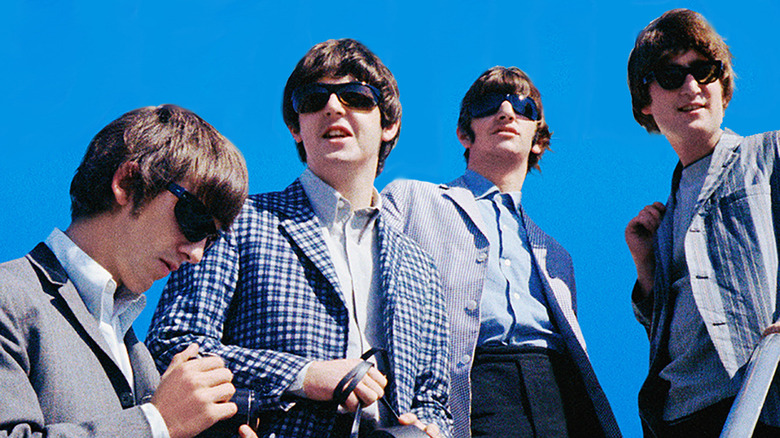
It's challenging for a documentary about the Beatles to stand out, as the influence of the Fab Four has been frequently explored onscreen in a wide variety of ways. The band themselves starred in the narrative feature films "A Hard Day's Night" and "Help!" They also appeared in the divisive documentary "Let it Be," which covered the production of their final album. Peter Jackson will explore the same period in his upcoming Disney+ docuseries, "The Beatles: Get Back." Beatles music has inspired many narrative films, including the historical musical "Across the Universe," the alternate reality rom-com "Yesterday," and the John Lennon biopic "Nowhere Boy."
Another Beatles film could have felt like a retread, but thankfully Ron Howard took a refreshingly old-fashioned approach with his 2016 film "The Beatles: Eight Days a Week — The Touring Years." Featuring a plethora of archive footage and exclusive interviews with Paul McCartney and Ringo Starr, "Eight Days a Week" mostly focuses on the positive force that the Beatles led in music, and doesn't delve as deeply into their more controversial moments. After a beginning section that gives an engaging overview of the Beatles' origins, Howard focuses on the years they spent touring the United States.
The tours certainly take a toll on the band's relationship, as the stress of maintaining their celebrity personas under American media coverage proves to be quite taxing. Their final 1966 performance in San Francisco is particularly touching.
Monterey Pop
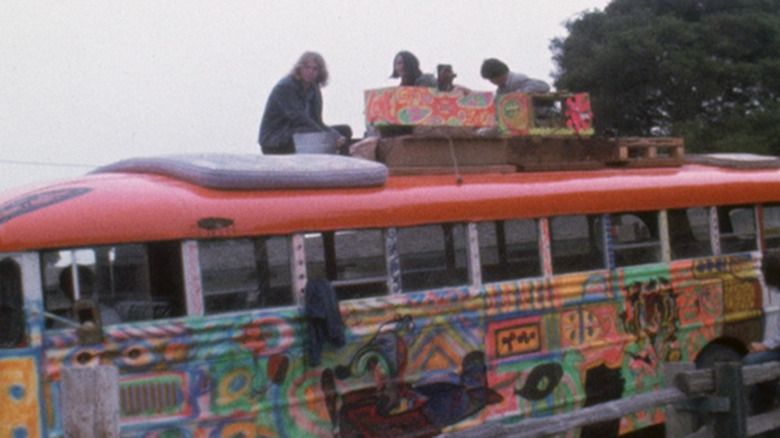
While many music documentaries succeed by narrowing their focus to a singular performer and deconstructing their influence, some of the best are able to detail the impact of multiple great performers. Another classic from the unparalleled documentarian D. A. Pennebaker, "Monterey Pop" details a 1967 rock and pop concert that featured an amazing lineup of musicians such as the Who, the Mamas and the Papas, Simon & Garfunkel, Jefferson Airplane, the Jimi Hendrix Experience, Canned Heat, and Otis Redding, among others. Pennebaker is ambidextrous and gives each performance the same amount of respect and consideration, and balances the different music genres into a fluid experience.
Pennebaker connects the overarching similarities between the performers as they explore countercultural themes. Not all of the artists were established at the time, and "Monterey Pop" helped spotlight their work as the music movie itself was still evolving. It's the rare documentary that had real-world ramifications, as the electricity of seeing the performances on screen inspired some cinephiles to engage with music festivals. Among the film's supporters was French New Wave director Jean-Luc Godard, who famously was so moved that he decided to work with Pennebaker on an unfinished project that, unfortunately, never saw the light of day.
Read this next: Every Martin Scorsese Feature Ranked From Worst To Best
The post The Best Music Documentaries of All Time appeared first on /Film.
0 Commentaires